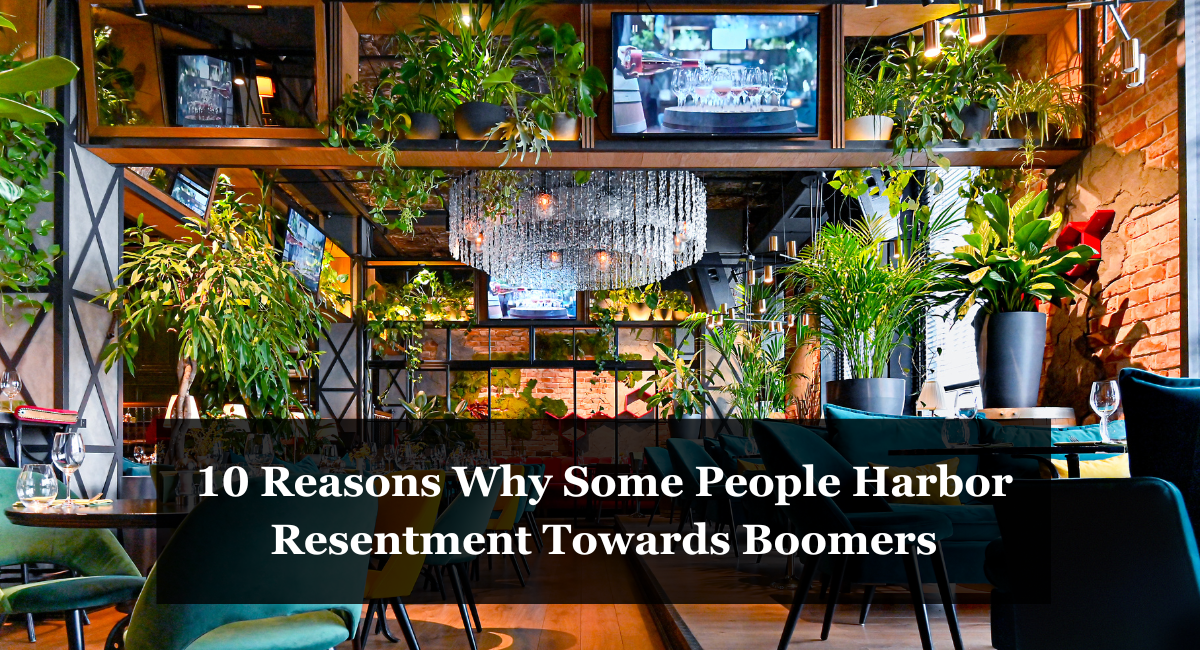In recent years, there’s been a noticeable increase in discussions and debates surrounding generational differences, particularly focusing on the Baby Boomer generation, typically defined as those born between 1946 and 1964.
It’s no secret that some younger generations harbor resentment towards Boomers for various reasons.
Understanding these reasons is key to bridging generational gaps and fostering better intergenerational relationships.
Here are 10 reasons why some people feel resentful towards Boomers.
1. Economic Challenges
The economic landscape has drastically changed since Boomers were young. Many feel that Boomers enjoyed a more robust economy and affordable living costs, including cheaper education and housing.
In contrast, later generations face high student debt, soaring housing prices, and greater economic uncertainty, fostering a sense of resentment.
2. Perceived Entitlement
Some people perceive Boomers as having a sense of entitlement. This view is often based on the belief that Boomers had access to more opportunities and resources, which they now take for granted, while younger generations struggle to attain similar stability and prosperity.
3. Environmental Concerns
Boomers grew up in an era of rapid industrialization and economic growth, often at the expense of environmental health.
Younger generations, increasingly aware of environmental issues, sometimes view Boomers as responsible for not addressing these problems earlier, leading to the current climate crisis.
4. Political Influence
The Boomer generation has been a dominant political force, often shaping policies that younger generations disagree with. Some feel that these policies do not adequately address modern challenges or the needs and values of younger people.
5. Resistance to Change
There’s a perception that Boomers are resistant to social and technological changes. This resistance is sometimes seen as a barrier to progress, particularly in areas like social justice, technology, and innovative work practices.
6. Generational Stereotyping
Just as Boomers are often stereotyped, they are also perceived as stereotyping younger generations, such as Millennials and Gen Z.
This generational stereotyping, often dismissing younger people’s challenges and viewpoints, can be a source of resentment.
7. Work Culture and Retirement
Boomers are sometimes seen as holding onto jobs for longer, delaying retirement, and thus limiting career advancement opportunities for younger generations. Additionally, the work culture established by Boomers is often viewed as outdated by younger employees.
8. The Wealth Gap
The wealth disparity between Boomers and younger generations is a significant point of contention. Many Boomers were able to accumulate wealth through property and stable careers, a feat more challenging for younger generations to achieve, exacerbating the feeling of inequality.
9. Healthcare and Social Security Concerns
Younger generations are concerned about the sustainability of healthcare and social security systems, especially as Boomers age. There’s a fear that these systems may become overburdened or underfunded, affecting the availability of resources when younger generations age.
10. Communication Differences
Finally, the way Boomers communicate, often favoring more traditional methods over digital platforms, can create misunderstandings and disconnects with younger generations who are more tech-savvy.
Bridging the Gap
It’s important to recognize that these points of resentment are part of broader social and economic issues, not the fault of any single generation. Understanding and empathy are crucial in addressing these concerns.
Dialogue between generations can foster a more collaborative approach to solving these challenges, benefiting society as a whole.
As we move forward, it’s vital to remember that every generation faces its unique set of challenges and opportunities.
Working together with respect and understanding can lead to a more harmonious and productive society for all generations.







